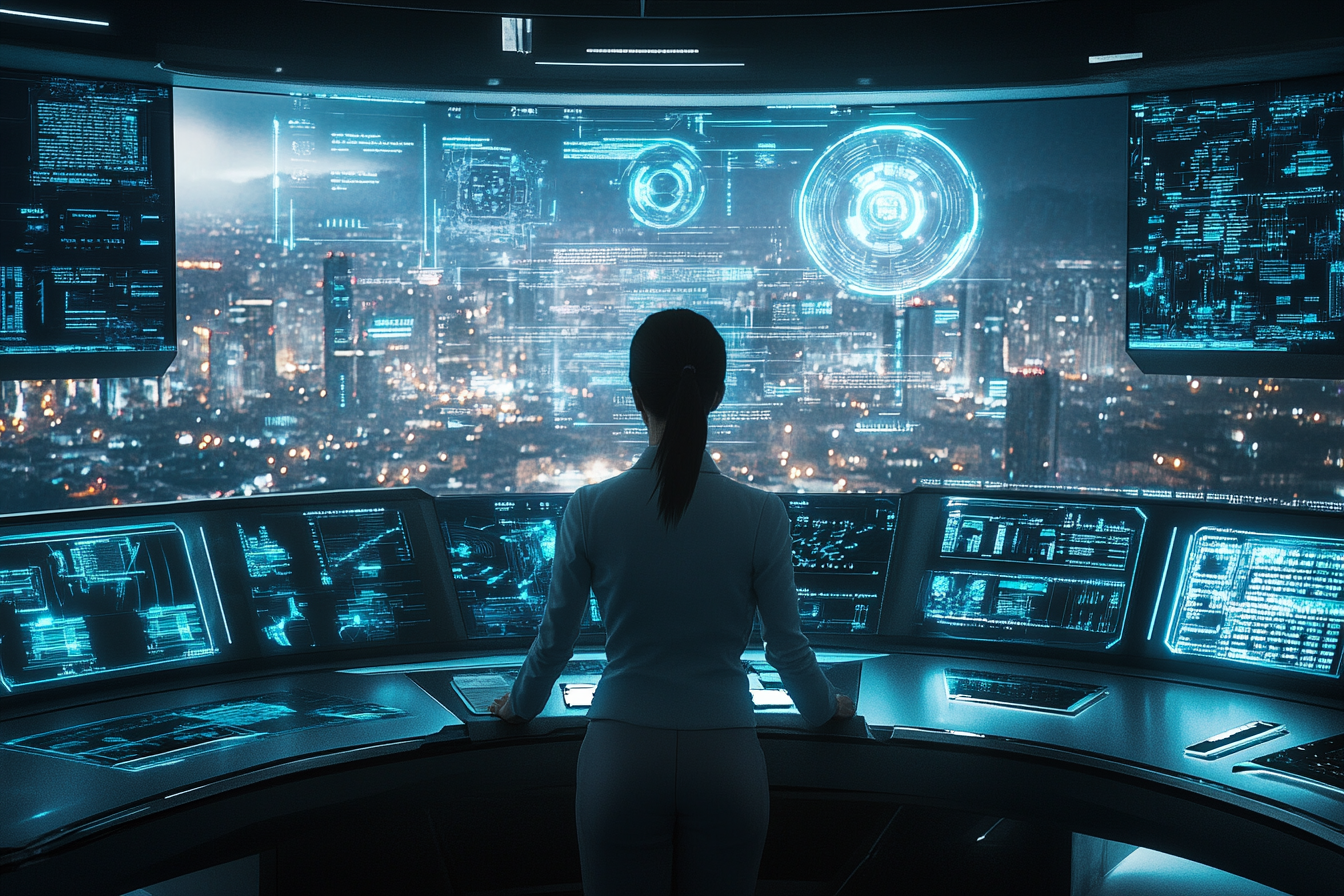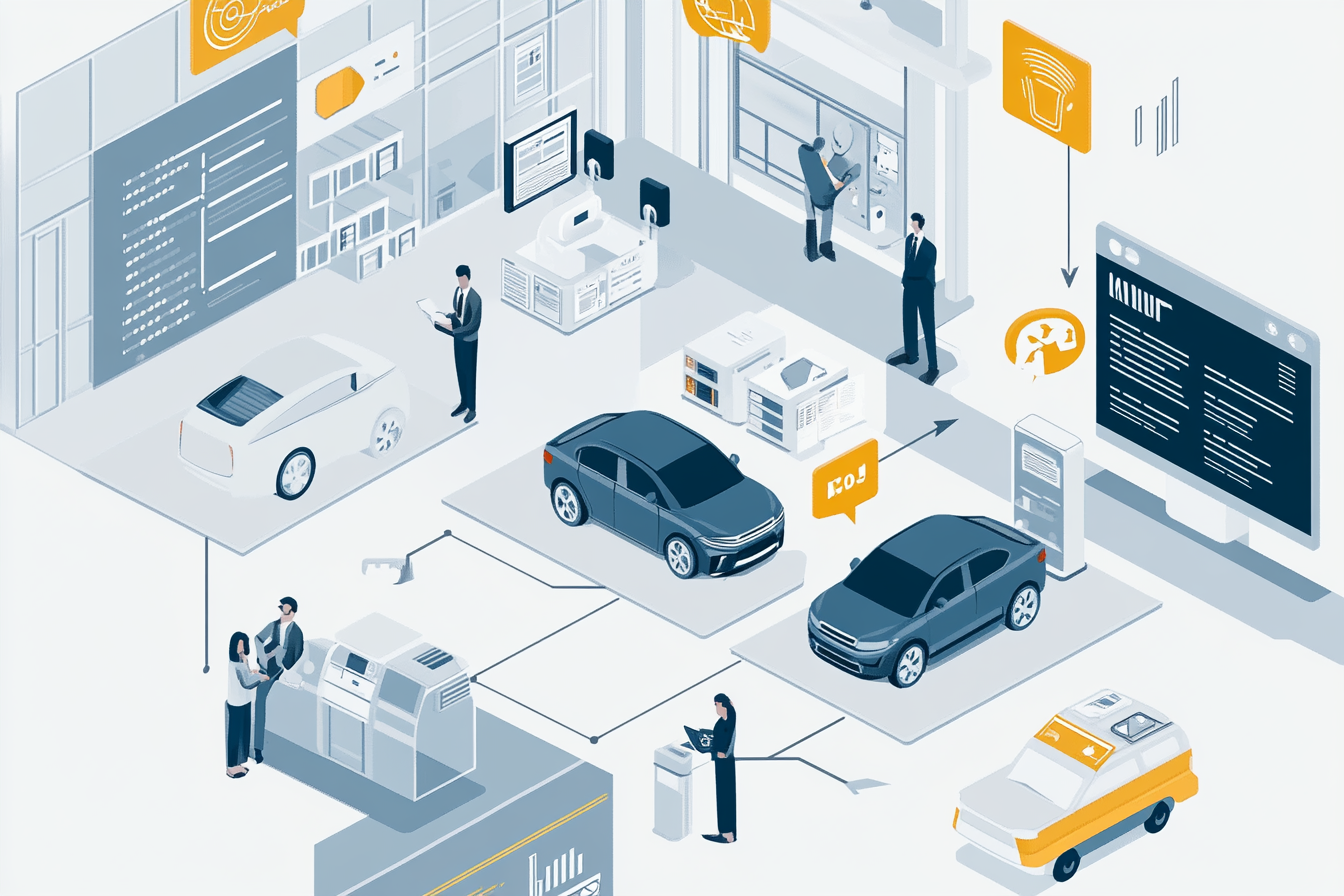AI automation agents are advanced entities designed to act autonomously within given environments, leveraging artificial intelligence to execute tasks based on inputs and surrounding circumstances. These agents are increasingly being integrated into various workflows to enhance productivity and streamline operations.
Key Takeaways
- Definition: AI automation agents are autonomous entities capable of executing tasks and making decisions based on surroundings.
- Types: Include simple-reflex, model-based reflex, goal-based, utility-based, learning agents, and multi-agent systems.
- Applications: Ranges from personal assistants like Devin to complex systems such as self-driving cars (Waymo).
- Tools & Commands: Customizable tools can be enabled, including web browsing and email, to enhance agent capabilities for specific tasks.
- Ethical Considerations: Discussions surrounding autonomy, job displacement, bias, and accountability are paramount as AI agents become more prevalent.
Explore automation possibilities with ipsom.io.
Understanding AI Automation Agents
- AI Automation Agents: Advanced entities that perform autonomous tasks based on their environment.
- Key Features: Excel in decision-making and task execution, distinguishing them from traditional software programs.
- Real-Time Inputs: Adapt and make decisions without constant human intervention.
What are AI Automation Agents?
- Intelligent Tools: Designed to handle tasks autonomously, enhancing operational efficiency.
- Purpose: Reduce manual workload for users.
- Algorithmic Learning: Unlike traditional software, which relies on fixed programming, AI agents learn and adapt over time.
- Autonomy: Capable of managing tasks and making decisions effectively in response to dynamic circumstances.
Components of an AI Agent System
An effective AI agent system consists of several crucial components:
- Sensors:
- Gather data from the environment.
- Utilize inputs like cameras and microphones to perceive surroundings.
- Processors:
- Often referred to as the “brain.”
- Analyze data, make decisions, and issue commands based on inputs received.
- Actuators:
- Tools that perform actions in the environment.
- Examples include robotic arms or software commands generating tangible results.
- Learning Systems:
- Enable AI agents to retain information and enhance performance based on past experiences.
- Improve effectiveness over time by learning from previous tasks and outcomes.
Understanding these components is key to leveraging the full potential of AI automation agents across various applications.
Types of AI Agents
AI agents can be categorized based on their functionality and how they interact with their environments. Each type serves specific purposes and employs unique strategies to accomplish tasks.
Categorization by Functionality
- Simple-reflex agents:
- Respond to stimuli with predefined actions.
- Example: A smart thermostat that adjusts temperature based on user settings.
- Model-based reflex agents:
- Maintain an internal state based on environmental changes.
- Allow for more sophisticated decision-making.
- Example: Self-driving cars that analyze real-time data for navigation.
- Goal-based agents:
- Designed to achieve specific objectives.
- Develop strategies to meet goals.
- Example: Chess-playing AI that evaluates various moves to win games.
- Utility-based agents:
- Use predefined criteria to make informed decisions.
- Evaluate options to maximize benefits.
- Example: Traffic management systems that optimize flow and reduce congestion.
- Learning agents:
- Adapt and improve from experiences, unlike traditional models.
- Evolve strategies through feedback.
- Example: Spam filters that become better at identifying unsolicited emails over time.
- Multi-agent systems:
- Involve collaboration between multiple agents.
- Tackle complex challenges collectively.
- Example: Project management systems where different agents handle various tasks in coordination.
Applications of AI Agents
AI agents have a wide range of real-world applications, showcasing their versatility and efficiency. From assisting in daily tasks to powering complex systems, they significantly enhance productivity and streamline operations.
Real-world Examples
One notable example is Devin, an AI software engineer that aids in drafting code. Devin accelerates software development by reducing manual input. Another prominent application is Waymo, which utilizes self-driving car technology to navigate complex environments. These vehicles learn from vast amounts of data, improving their navigation skills.
The OpenAI Assistants API is another application, integrating AI agents to complete tasks efficiently. Additionally, Google’s Project Astra provides AI assistance for real-time task management, keeping users organized and on track.
Tools for AI Automation
Various tools enable the creation and customization of AI automation agents. For instance, Taskade is a platform for building personalized AI agents to optimize workflows. Developers can use platforms like BabyAGI and Zapier Central to create tailored AI assistants. Research tools such as Aomni and Toliman AI enhance task management and web research capabilities.
These tools empower companies to leverage the full potential of AI agents, making operations smoother and more efficient. Automating workflows reduces repetitive tasks and allows teams to focus on higher-value activities.
Enhancing Productivity with AI Agents
AI agents significantly boost productivity in diverse workflows. Their independence allows them to operate seamlessly once launched, unlike traditional chatbots that depend on continual user input. This autonomy enables AI agents to tackle complex tasks while adapting based on prior experiences.
Independence and Flexibility
AI agents excel at managing tasks independently. They can process inputs and execute decisions without micromanagement. This flexibility empowers them to learn and evolve, making them well-suited for dynamic business environments.
Customizing AI Agents
Customization is key to maximizing the impact of AI agents. Setting up tailored automations ensures that these agents align with specific user workflows. Platforms like Taskade offer five AI-powered tools that enhance team productivity by automating file management, task creation, and developing actionable strategies.
Collaborating with AI
Working collaboratively with AI agents fosters team efficiency. Custom agents can be shared within teams, allowing multiple agents to function simultaneously across different project areas. This setup enables various interaction styles, adapting tones and perspectives according to context, ultimately enhancing team collaboration and project outcomes.
Start enhancing your productivity with customized AI solutions at ipsom.io.
Ethical and Societal Considerations
As AI agents become more prevalent, ethical and societal considerations are paramount. Questions arise regarding their autonomy and decision-making capabilities. Can we trust AI agents to make acceptable choices? This concern extends to their impact on jobs. Increased automation may lead to job displacement, causing significant shifts in the workforce.
Questions Surrounding AI Agency
The autonomy of AI agents raises important questions about accountability. Who is responsible for decisions made by an AI? Issues of bias in AI-driven decisions must also be addressed. If algorithms are trained on biased data, their outputs may reinforce existing inequalities. These challenges highlight the need for transparent and balanced approach to AI integration.
Future of AI Agents
The rapid advancements in AI technology require continuous reflection on ethical implications. As we integrate AI agents into daily life, we must consider the necessity for regulations and oversight. Ensuring responsible use of AI technology will be crucial for gaining societal trust and maximizing its potential benefits.
FAQ
What defines an AI automation agent?
An AI automation agent is an autonomous entity that can execute tasks and make decisions based on its environment. These agents leverage artificial intelligence to respond to inputs and conditions without human intervention.
How do AI automation agents differ from chatbots?
AI automation agents operate independently post-launch, handling complex tasks. In contrast, chatbots often require constant input from users. While chatbots typically follow scripted interactions, AI agents utilize machine learning to adapt and improve over time.
What are the main components of an AI agent system?
An AI agent system consists of the following components:
- Sensors: Gather data from the environment.
- Processors: The core system for decision-making.
- Actuators: Tools that execute actions based on decisions.
- Learning systems: Mechanisms that retain and use past data to enhance performance.
Can AI agents learn from their experiences?
Yes, many AI agents are classified as learning agents. They can adapt their behavior based on past experiences, improving their performance over time. This capability allows them to function effectively in dynamic environments.
What types of tasks can AI agents automate?
AI agents can automate a wide range of tasks, from simple operations like data entry to complex systems such as self-driving vehicles and real-time task management. They are capable of handling repetitive tasks, enhancing productivity, and streamlining workflows.
How do businesses benefit from using AI automation agents?
Businesses benefit by increasing efficiency and productivity. AI agents can handle various tasks, reduce manual labor, and allow employees to focus on strategic initiatives, thus driving growth and innovation.
What tools are available for customizing AI agents?
Several tools exist for customizing AI agents, including platforms like Taskade, BabyAGI, and Zapier Central. These tools provide a framework for building tailored AI solutions that meet specific workflow needs.
Are there any ethical concerns associated with AI automation agents?
Yes, ethical concerns include the potential for job displacement, issues of bias, and the accountability of AI-driven decisions. Continuous discussions are necessary to address these concerns as AI technology advances.
How do multiple AI agents collaborate on a project?
Multiple AI agents can operate concurrently, each handling specific aspects of a project. They can be programmed to share information and insights, thus enhancing overall project management and efficiency.
What is the future outlook for AI automation in various industries?
The future of AI automation is poised for rapid growth across various industries. With ongoing advancements in technology, AI agents are expected to play a crucial role in transforming workflows, improving decision-making, and fostering greater efficiency.







